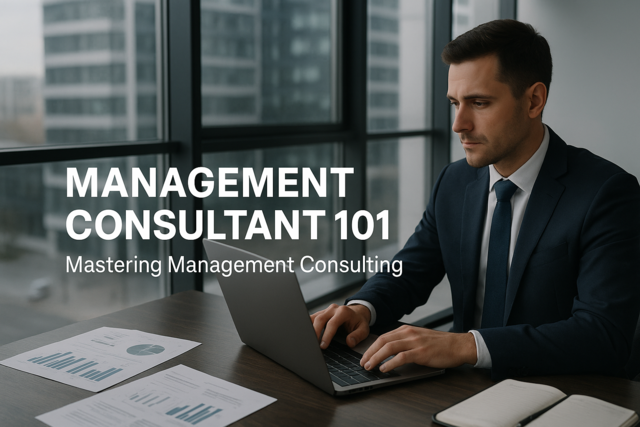As with most challenging endeavors, the place to begin is the beginning. Begin searching for top salespeople before you ever open your business doors. Keep your eyes and ears perked up for people who may be looking or interested in your new business and for people who may become interested in the future.
When first beginning a business, it is likely that you are putting in a lot of building time from your own resources. It is also likely that you can sell your company or services better than anyone you will ever hire unless, of course, you have no people skills. In this case, do not start your company without a salesperson on board. Most companies begin with the owner(s) doing most of the work for the first few years. It is during this time that you want to keep your eyes and ears working in every circle you move in.
The most reputable sources for beginning a sales staff search are those in which you, the business owner, already move and associate. It may be your professional association, your local chamber of commerce, or your personal LinkedIn http://www.LinkedIn.com account. Wherever you spend your time and effort cultivating professional relationships, you will have the greatest opportunity for connecting with highly qualified salespeople or executives who know well-equipped account executives that would be a good fit for your company. Success breeds success, and executives refer professionals to one another in the halls of their associations. Therefore, do not be shy about asking anyone in your group if he or she knows of and is willing to refer someone who would be a good fit. In some systems, like LinkedIn, you can actually post the type of "needs" your company has at the moment, and it is common for executives to post the type of employee they are looking to hire.
The largest, most reputable name in online sources is Monster http://www.Monster.com . Monster has an enormous database of people looking for the perfect fit with a good company. For $200, you can conduct a three-day search for talent within 100 miles of your ZIP code.
The really cool thing about Monster is that it helps both sides qualify and match for an agreeable, profitable, and exciting career arrangement. Yes, you can do this via traditional services, but the pool of talent in Monster is younger, usually more up-to-date on elements in the marketplace, and usually will cost you less to hire.
It is important to remember that the more familiar you want to be with your sales staff, or the more comfortable you want your clients to be with them, the more traditional avenues you should look down when choosing your salespeople. It is only in the traditional circles that you are most likely to have a firm and personal understanding of the prospective member of your sales team. There is some overlap here when holding this approach up to the reputable sources. Some of the most reputable sources you have are your traditional avenues. Just remember, the more personally you want to know your employee, the more likely you are to find your pick in traditional circles.
To jump straight to the top in your search for quality salespeople, you will want to check out The Ladders http://recruit.theladders.com/ , where 8,000-plus sales professionals are screened each week for jobs paying $100,000 or more per year. Remember, the sales staff is your revenue engine, so you must expect to pay them more than a clerk or support staff. If you need to pump up your sales significantly, then you must be willing to pay significantly for those who have a track record of producing.
Screening for MMFI
One of the most important skills that a developed salesperson can have is the ability to make the client feel important. It is the MMFI trait, also known as "Make Me Feel Important." When you begin to recruit your sales staff, it is the one trait that you want to look for in all instances, all encounters, and in every line of the applicant's r�sum�. If the applicant has a writer produce a top-notch r�sum� for him or her but cannot nonverbally communicate to you your own importance in the interview, then that person simply had a writer write fluff to represent the applicant well.
In the United States, companies everywhere are suffering from a lack of service, a lack of concern, and a lack of attentiveness to the client. Much of the business that travels overseas is a result of straight-up competition, and it begins with the salespeople. If the company's sales staff cannot communicate to clients their importance to the company, to its production, and to its ability to serve up what is needed, then that staff cannot capture and keep clients. Without clients, you have no business, so the salesperson must be able to make clients feel important.
Here is a list of things to look for to properly screen your company's sales candidates for the MMFI trait:
-
Who is the most important person in the r�sum� when you read the candidate's description of his or her previous work? Was it the candidate, or was it the client, the company, or the boss? If the most important person in the description of work performed is the candidate, then she or he has not developed the MMFI trait.
-
When you speak with applicants on the phone, listen closely to the actual language used. Does their language focus on what the boss or client needed that they were able to provide, or does it focus on what a star performer they were while at their previous company? Star performance without client focus will eventually shortchange your company.
-
When you speak with them face to face, what do you pick up on about their personality? Are they warm and genuine? Do they seem "down to earth" when interacting with you? Is their language short and seemingly calculated? Do they have all of the answers up front, or do they seem to genuinely think about their interview answers? People who communicate in a calculated manner seem to lack the MMFI trait. They may be quite bright, but if they do not communicate in a genuine manner, then they lack the natural ability to make another person feel important. This is why most engineers are not good salespeople; they are bright enough, but too technical to make the personal connection necessary for the client to feel important.
-
Listen closely to the candidates' actual language in the interview. Do they spend a lot of their talk time using "I" or "me" or the like? Is their language balanced with concern for others as well as themselves, or is it all about them and what they have done? Too much "I did" in the conversation comes across as self-absorption and selfish. Yes, the interview is about what they have done in their past, and you do need to know, but if they cannot balance their communication focus so that you get an idea of what an asset they were because of how they were able to help the company grow or retain important business, then they really do not have the ability to make your clients feel as if they are the best.
-
When you ask them about their family, listen to how they respond. Is their response to family questions a totally positive answer? Do they praise and lift up their family members even though they are not there in the interview? Do they quickly answer and move on? You want to pay attention to what they say about family because if they do not have a solid view of their family members being a team of terrific people, then they will likely show their selfishness in what is revealed. Selfish people who make the family all about them are not able to truly make others feel important. Remember, in the interview you are searching for certain qualities.
-
When you speak with candidates face to face, do they look you in the eye? Some say there are no terrific salespeople who do not look people in the eye, but that is simply not true. You do not have to look people in the eye to be a terrific television sales representative. There are many industries that do not require such a personal touch to be successful in sales. There are no successful salespeople in high-end businesses or services who do not look their clients in the eye. Why is that so important? The eye contact makes the other person feel important, connected, understood, and appreciated.
Remember, successful salespeople are selfish to a great degree because a certain level of selfishness is required to succeed in the sales process. If salespeople did not invoke their selfish motives and simply indulged their social needs and skills, then it is likely you would get nothing sold and they would make plenty of friends while you waited for the sale. At the same time, it is not in your company's best interest to hire salespeople who cannot regularly make others in any given conversation feel as if they are the most important persons in the room, even while talking to them.
When you screen for the MMFI trait, you are really attempting to put your fingers on the pulse of the potential salesperson's personal development so that you can make a production judgment. You are also checking for a pulse in the customer satisfaction department. The more important the client feels, the more likely that client is to be satisfied and become a loyal customer of your company. A loyal customer is a treasure and a valuable result of a talented sales staff.





























